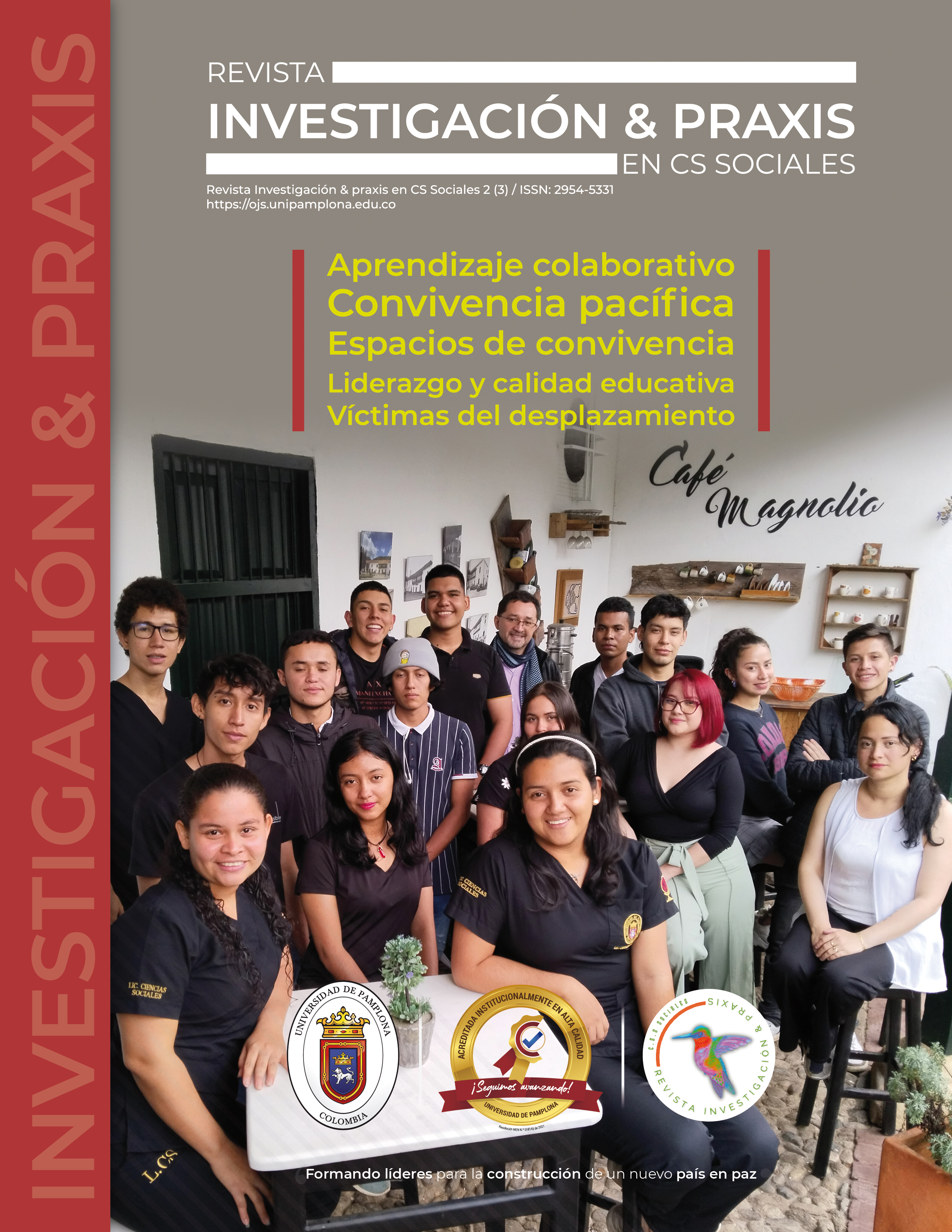REHEARSAL: States with unlimited recognition the struggle for autonomy
DOI:
https://doi.org/10.24054/ripcs.v2i3.2380Keywords:
Soberanía, autonomía, independencia, territorio, gobierno, constitución, reconocimientoAbstract
This essay relied on the bibliographic method to gather, analyze, and integrate information from various sources. Initially, the scope and objectives of the research were clearly defined. Subsequently, an exhaustive bibliographic search was conducted across various sources such as books, scientific journals, theses, and technical reports.
After critically evaluating these sources and selecting the most relevant and reliable ones, a detailed analysis of their content was carried out. Bibliographic references were collected and systematically organized using tools such as outlines, concept maps, or bibliographic cards.
Emphasis was placed on correctly citing all sources, following established citation and referencing standards. This was essential to avoid plagiarism and to ensure that the collected information was used ethically.
The gathered information served as support for all claims and arguments presented in the final work. Following the drafting of the document, a thorough review was conducted to correct any grammatical, spelling, or formatting errors, and to ensure that the references were cited and formatted correctly.
Finally, the essay highlighted the importance of staying up-to-date with new research and receiving feedback from other experts in the field as a way to continuously enrich and improve the work done
References
Grant, T. D. (2019). Recognition of States: International Law or World Politics? Oxford University Press.
Ker-Lindsay, J. (2012). The Foreign Policy of Counter Secession: Preventing the Recognition of Contested States. Oxford University Press.
Dowty, A. (1987). Closed Borders: The Contemporary Assault on Freedom of Movement. Yale University Press.
Hannum, H. (1996). Autonomy, Sovereignty, and Self-Determination: The Accommodation of Conflicting Rights. University of Pennsylvania Press.
Boulden, J. (Ed.). (2018). Kosovo, Intervention, and Statebuilding: The International Community and the Transition to Independence. Routledge.
Sadurski, W. (2018). Secessionism and Autonomy: Exploring the Moral Foundations of the Right to Self-Determination. Oxford University Press.
Bauböck, R., & Kostakopoulou, D. (Eds.). (2019). Debating Transformations of National Citizenship. Springer.
Raic, D. (Ed.). (2005). Statehood and the Law of Self-Determination. Martinus Nijhoff Publishers.
Hannikainen, L. (1997). The Politics of Recognition and Engagement: EU Member State Relations with Non-Recognised States and Entities in the Post-Cold War Era. Tampere Peace Research Institute.
Rehman, J. (2007). International Humanitarian Law and International Human Rights Law: Similarities and Differences. International Review of the Red Cross, 89(868), 433-455.
Downloads
Published
Versions
- 2023-03-12 (5)
- 2024-09-06 (4)
- 2023-06-15 (3)
- 2023-06-15 (2)
- 2023-06-15 (1)
How to Cite
Issue
Section
License
Copyright (c) 2023 Revista Investigación & praxis en CS Sociales

This work is licensed under a Creative Commons Attribution 4.0 International License.
Los autores que publican en la revista se acogen al código de licencia CC BY. Esto significa que se permite a terceros acceder, descargar y utilizar lo publicado en la revista siempre que se les dé el reconocimiento de propiedad intelectual al autor original. Esto incluye la obligación de proporcionar crédito adecuado por su trabajo y una indicación adecuada de cualquier cambio realizado. No se permite el uso comercial de la obra sin autorización previa del autor.






